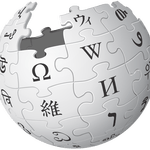18 Dec 2014
I was recently at Wikimedia’s HQ in San Francisco to give a short talk about some of the geographic imbalances in Wikipedia. I was telling a now familiar story: one where not only do we not see many contributions from global margins, but we also don’t see many contributions about global margins. Over lunch, our conversation shifted to Wikimedia’s vision statement:
Imagine a world in which every single human being can freely share in the sum of all knowledge. That’s our commitment.
Asof Bartov then kindly directed me to a legitimate effort by Wikipedia user emijrp to quantify the sum of all human knowledge. The page, for instance, notes that there are an estimated 100,000 species of bacteria, 21,000 known drugs, 6900 human languages, 8000 sports, 97,000,000 songs etc. etc. – but of course a far smaller number of Wikipedia articles about (or even mentions of) all of those things.
I should say here that I believe Wikipedia truly is one of the most wonderful human inventions. The platform, the licences used to govern open content, the global network on which it is built, and, of course the social practices that allow it to be brought into being, have done more to spread information than just about anything else in the history of humanity.
But is ‘the sum of all knowledge’ really the end-point? Not only is the sum of all knowledge not something that we can ever collate into a single platform, but I worry that even attempting to do so can make us lose sight of what might actually be accomplishable.
It isn’t wrong to strive to know the unknown. But if the unknown is so immeasurably large (despite emijrp’s best efforts), and much of human knowledge is necessarily socially or individually contingent, then focusing solely on the percentage of the total amount of universal knowledge that we have been able to capture and codify somewhat loses the plot of what really matters.
Think, for instance, of a city. What element of, or processes and practices in, a city should be represented in a Wikipedia article? The issue is that there is no objective standard of notability here. Do we want an article about every street in the city? Every house in the city? Every brick in the city?
But let’s think about the city a little differently. What about a city in which there are fundamentally different visions of what the city itself is. Compare, for instance, the English, Arabic, and Hebrew versions of the city of Jerusalem: they all present significantly different visions and versions of the very same place. As do the Estonian and Russian versions of the Bronze Statue of Tallinn. And as do countless other objects of interest to people.
My point is that getting closer to the sum of all knowledge is not necessarily the biggest issue. The issue is recognising that knowledge can be contested. Not everything can be supported by a citation. Not everything can be boiled down to the truth. Perhaps what we need to strive for then, is not just a way to get closer to the sum of all knowledge, but also a way of making sure we always recognise the multiplicity and diversity of knowledges. The sum of all knowledge is a laudable goal, but let’s make sure we focus more explicitly on the diversity of knowledge whilst we get there.
